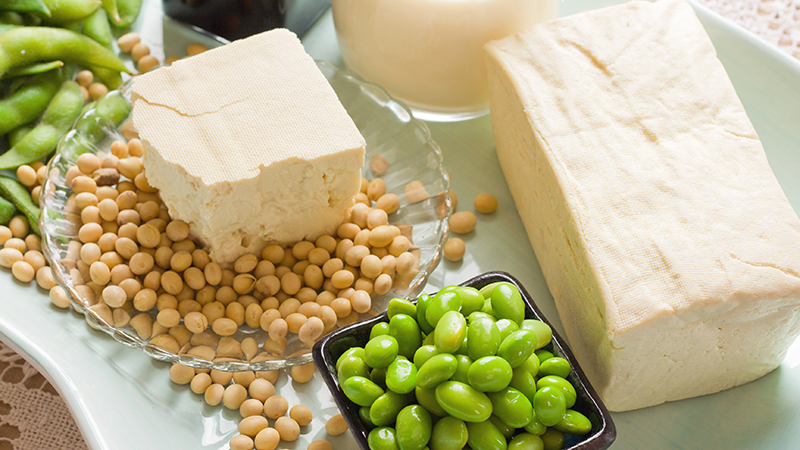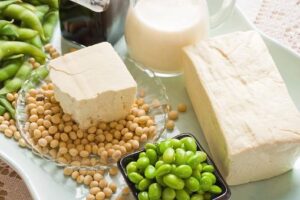
Everybody deserves the chance to experience good health. Access to nourishing food is essential for individuals to achieve this opportunity. These are elementary universal facts. By 2050, the earth’s population is estimated to exceed 9 billion, resulting in a substantially greater demand for protein than at present.
To nourish the entire society, U.S. Together with animal farming, soy contributes significantly to global food security by providing a steady supply of high-quality protein. Collectively, they constitute a formidable source of nutrients to drive our population and economic expansion. Below are a few explanations of why soybeans are significant, as well as their contribution to world nutrition:
Soy’s Contribution to Good Nutrition
The availability of high-quality protein is crucial for proper nutrition and health. Soy is a complete and nutrient-dense protein that contains all three macronutrients necessary for proper nutrition, along with fiber, vitamins, and minerals, with minimal levels of saturated fat. Numerous research studies organized by the Soy Nutrition Institute and peer-reviewed demonstrate soy’s safety and health advantages.

Soy as a remedy begins with farmers who accept their duties as soy growers and providers of nutritious, secure, and inexpensive protein – both as human food and animal feed. This promotes healthier and more flavorful meals and improved lives for families across the globe. In addition, soy producers provide this critical food staple with the highest quality, dependability, and longevity in the globe.
We also recognize the importance of food preferences and the necessity to supply the global demand for nutritional protein. One of the global soy use is that soy offers humans complete protein that can be the starting point for healthy vegetarian or vegan diets and is a key element in many conventional, nutritious cuisines worldwide. In addition to delivering high-quality protein, soy can provide various additional health benefits, including enhanced heart health and a decreased risk of developing some types of cancer.

Beyond the Bean: Global Nutritional Advancement
If we are to realize the World Health Day objective of creating a nutritionally healthier and more equitable world, we have a long way to go on numerous fronts.
The soy industry heartily supports this objective and is devoted to increasing access to nutritious food produced in an environmentally friendly manner. Before establishing collaborations that generate progress, priority should be given to people.
Greater access to soy is a crucial component of farmers’ commitment to reducing world hunger, and as a result, nutrition is increasing. It is possible to design soybeans to grow in drier settings without sacrificing crop output. If the new kinds prove to be resilient, producing soybeans in many locations of the world will assist in alleviating food insecurity in various regions.
Soybeans are one of the planet’s most important sources of protein crops
Soybeans contain approximately 35% protein and beneficial unsaturated fats and carbohydrate fibers, making them among the healthiest food sources available. Compared to eggs, milk, beef, and cowpeas, they are also one of the least expensive protein sources. Due to the use of soybeans in the food and animal feed industries, soybean producers can earn a large amount of money due to the crop’s low cost of production and widespread application in both industries.

Soybeans may have a lasting effect on poverty
Soon, food and water security will be a key public security priority due to the impact of climate change and population growth on global food production. Nations lacking basic food supplies to support their expanding urban populations may become breeding grounds for conflict, unrest, and terrorism.
While legislators, scientists, and farmers should address and examine numerous solutions for food insecurity, soybean technology provides a first step in meeting the requirements of impoverished regions by providing a modified crop with multiple uses.
Reengineered soybeans are a creative (and nutritious) approach to addressing global food security challenges. In addition to providing a nutritious food source, their extensive use in goods ranging from oils to food to animal feed ensures a rich market for local farmers. In light of climate and demographic challenges, bringing food security to emerging regions of the world through innovative improvements in how staple crops are traditionally farmed is a cost-effective and feasible strategy.
To address the world’s food demands, food production must expand substantially
Many variables will influence global food security in the upcoming years, including population growth, migration from rural to urban regions, food production, and climate change. Today, malnutrition affects the majority of the world’s population.
Between now and decades ahead, there will be an expansion of people in our world, with most youngsters driven into a famine due to food security difficulties. Besides that, there are health benefits that soy has. Its lower glycemic index, which stabilizes blood glucose levels, makes it an ideal food for people with diabetes. Soy’s anticancer qualities protect against various malignancies, including breast, prostate, and skin, stomach, and colon cancer.

Final Thoughts
Soy is excellent for the malnourished and heart-healthy due to its low amount of saturated fat and high omega-3 and omega-6 fatty acid concentration. Soy has no cholesterol and guards against cardiovascular diseases by lowering blood cholesterol and blood pressure. Soy is also an excellent source of fiber that improves intestinal well-being and produces a feeling of satisfaction and completeness that lessens food cravings, which are advantageous for overweight persons or individuals attempting to manage their weight.


